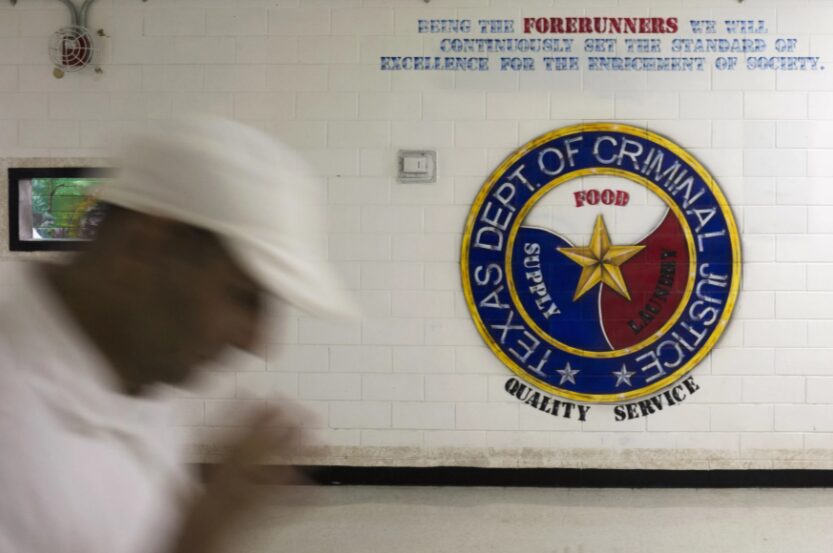Staffing Crisis in Texas Prisons: A Deep Dive into the Sunset Advisory Commission Report
In recent years, the Texas Department of Criminal Justice (TDCJ) has faced mounting challenges, particularly concerning staffing shortages that have left many of its facilities dangerously understaffed. A recent report from the Sunset Advisory Commission has shed light on these issues, highlighting systemic flaws that have persisted despite the agency’s significant budget—nearly $4 billion last year. This article explores the key findings of the report, the implications for inmates and staff, and the urgent need for reform.
Staffing Shortages: A Persistent Problem
One of the most alarming revelations from the Sunset Advisory Commission report is the chronic staffing crisis within Texas prisons. For years, TDCJ has operated at around a 25% vacancy rate, with some facilities reporting staffing levels as low as 40%. This shortage has not only placed immense pressure on the remaining staff but has also contributed to a more dangerous environment for both inmates and correctional officers.
The report indicates that the number of "adverse events"—a term encompassing incidents such as violence and contraband discoveries—has surged by approximately 30% since 2014. This increase is particularly concerning given that the inmate population has actually decreased during the same period. The report notes a troubling rise in contraband, including drugs, weapons, and cellphones, which further exacerbates the safety issues within the facilities.
The Impact of Overwork on Staff and Inmates
The staffing crisis has led to a culture of overwork among correctional officers. Many employees are forced to work excessive hours, often exceeding the TDCJ’s own policy of limiting shifts to 16 hours a day or 10 consecutive days. In Fiscal 2019 alone, the agency violated this policy approximately 9,000 times each month. This relentless workload has resulted in increased staff discontent, contributing to a vicious cycle of resignations and further staffing shortages.
According to the report, half of the correctional staff surveyed expressed that the amount of overtime they are required to work negatively impacts their safety, as well as that of the inmates and the public. The implications of this overwork are dire, as it not only affects the morale of the staff but also compromises the safety and rehabilitation of the inmates.
A Culture of Hostility and Ineffective Oversight
The report also highlights a troubling workplace culture within TDCJ, characterized by hostility and punitive measures. Staff surveys revealed that 33% of respondents identified a hostile work environment as their top complaint. This atmosphere is compounded by ineffective disciplinary policies that fail to hold upper-level staff accountable for their actions, leading to a lack of trust and morale among correctional officers.
The report points out that over 20% of parole officers and a similar percentage of other staff have faced disciplinary actions, yet these measures have proven ineffective as deterrents. This lack of accountability not only affects staff morale but also raises concerns about the overall safety and well-being of inmates.
Rising Suicide Rates: A Dire Consequence
The staffing crisis and the resulting environment have had grave consequences for inmate safety, particularly concerning mental health. The report notes that suicides in Texas prisons have more than doubled over the past decade, with Fiscal 2024 recording the highest number of suicides in over 20 years at 65 deaths. Experts, including Michele Deitch from the University of Texas at Austin, have pointed out that the high vacancy rate means fewer staff members are available to monitor inmates effectively, making it difficult to identify those at risk of self-harm.
Recommendations for Reform
In light of these findings, the Sunset Advisory Commission has put forth several recommendations aimed at addressing the staffing crisis and improving the overall functioning of TDCJ. Key suggestions include consolidating and expanding workforce retention support functions, collecting feedback from current and departing staff, and conducting thorough analyses of this feedback to inform future policies.
Additionally, the report emphasizes the need for better strategic planning, updated technology, and enhanced oversight of rehabilitation programs. These recommendations are crucial for creating a safer and more effective correctional system that prioritizes the well-being of both staff and inmates.
Moving Forward: A Call for Collaboration
In response to the report, TDCJ officials have expressed their appreciation for the Sunset Commission’s work and their eagerness to collaborate on improvements. Amanda Hernandez, the director of communications for TDCJ, stated that the agency looks forward to sharing information about its continuous improvement efforts, particularly those focused on work culture.
As the Sunset Commission prepares to decide which recommendations to adopt and legislate in the upcoming session, the future of Texas prisons hangs in the balance. The need for reform is urgent, and the implications of inaction could have far-reaching consequences for the safety and rehabilitation of thousands of inmates and the staff tasked with overseeing them.
